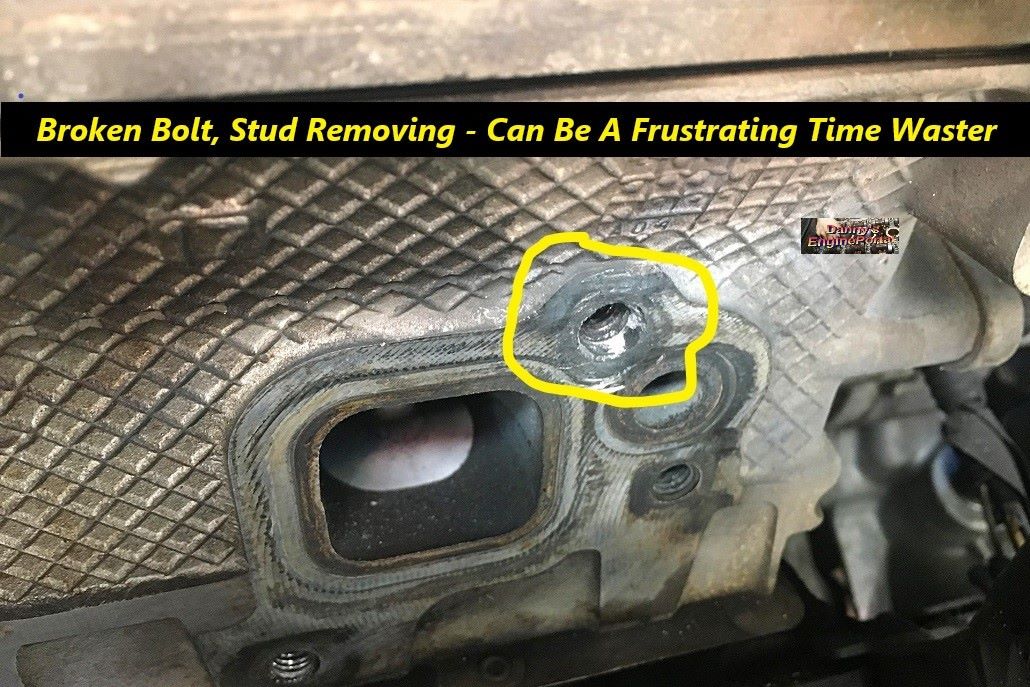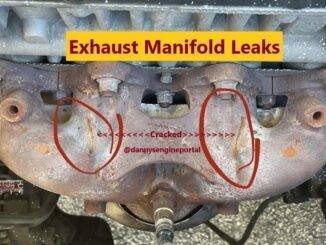
Removing broken bolts and studs is never a fun job, and can take more time than you think.
Broken bolt and stud removing, can often be a frustrating time waster, with no quick fix available.
So, it never fails! Just when you think you have got the whole job taken apart and everything is under control. You either twist off a nut, break or round off a screw, or strip out the threads entirely.
More often than not, removing the broken piece and/or repairing the broken threads. Can take longer than, all the whole job itself.
There are however, a few tips, tricks and tools, that might make the job easier. So, the job can’t proceed, until the fastener is removed. And, of course, you didn’t allow for all that extra time, did you? What to do now? What alternatives are there to get the bolt out? Probably the best piece of advice is, not to panic.
There are, in fact, many different ways to get broken bolts and screws out. Which method you use, will depend upon the circumstances and also your available tools.
At a minimum, I recommend every DYI should own:
- A small Easy – Out kit
- Set of left – hand drill bits
- Propane torch
- Electric drill (3/8 chuck, variable speed )
- Vise – Grip pliers
On top of this, they should also know about the different parts of a drill. And, how to drill correctly.
Broken or rusted stud
So, if there is a stub sticking out, an effort must be made to grab it, with Vise-Grip locking pliers.
Broken off flush
If it can’t be gripped, try to carefully turn it out of the hole, with a hammer and chisel. A bolt remnant, that has broken off flush or below the surface of the workpiece. Will usually be loose in the threads. In such a case, it often works to carefully use a punch or chisel. And, drive on the outer perimeter of the bolt, to turn it counterclockwise.
Weld on a washer or nut
If the above efforts fail, then you will need to:
- Weld a washer onto the stub.
- Then weld a nut to the washer.
- Turn the stub out by the nut, that was just welded to it.
Left hand drill bits
One often overlooked method of removing broken screws and bolts. And, perhaps the best first choice, is the left hand twist drill bit. These are the same as regular high speed drill bits. However, the cutting action is in a counterclockwise direction. As a result, it might just unscrew.
So, you will likely have to, drill a pilot hole at this point. Consequently, if you use a left hand drill bit, in many cases the drilling process, results in removal. Because, you are turning and biting into the stuck fastener, in the same direction as removal. For this reason, you should be looking at, some of the better quality drill bits.
The use of heat
Often a last resort, the application of heat to a stubborn, immovable fastener, can be the catalyst for success. So, why apply heat? Because, it excites the molecules in the metals, causing expansion. This expansion can take place, at different temperatures and rates for different metals.
One of the most common examples is, the heating of cast iron manifolds to remove stubborn steel studs.
Being dissimilar in structure, the cast iron heats and expands at a rate, greater than the steel fastener. As a result, allowing a space to form, between the two and facilitates easier removal. The added use of penetrating fluids, that can withstand high temperatures, enhance the chances for success.
Last resort
If all these methods fail to remove the broken bolt. Then, the only choice is to drill it out completely. The one downside is, this means drilling away the mating threads. In this case, you will have to tap new larger threads into the hole and find a larger bolt.
If you can not use a larger bolt, because of specific fit or appearance reasons? Well, in such cases you can obtain a Heli Coil Kit or use the Time Cert Method. This will allow you to machine the hole, back to the same size hole.
Now you can save time with Broken bolt and stud removing tips !
Good Luck, Patience Is everything !!
Conclusion
Finally, don’t make the job worse, by turning it the wrong way.
The easiest way to remember which direction tightens, and which one loosens use the old axiom.
“Righty Tighty and Lefty Loosey.”
- Almost always, this means that turning most threaded things right, or clockwise, tightens them (Righty Tighty).
- And turning them to the left, or counterclockwise, loosens them (Lefty Loosey).
BY DANNY BENDER




